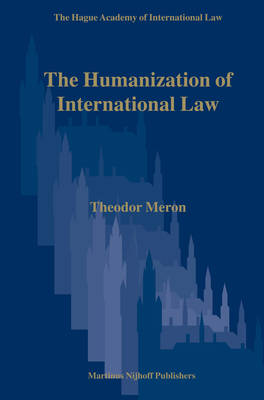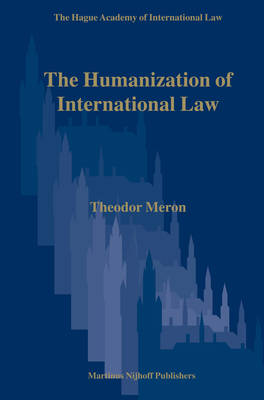
- Retrait gratuit dans votre magasin Club
- 7.000.000 titres dans notre catalogue
- Payer en toute sécurité
- Toujours un magasin près de chez vous
- Retrait gratuit dans votre magasin Club
- 7.000.0000 titres dans notre catalogue
- Payer en toute sécurité
- Toujours un magasin près de chez vous
Description
This work aims to consider the influence of human rights and humanitarian law on general international law: the humanization of international law. Although human rights and humanitarian norms are central to the book, it is not a book about human rights and humanitarian law. Rather, it deals with the radiation, or the reforming effect, that human rights and humanitarian law have had on other fields of public international law. Because of the peculiarities of human rights law, this influence cannot be taken for granted. It is sometimes said that the elaboration of human rights norms and institutions has produced no less than a revolution in the system of international law. Is this true and if so in which parts of international law? By examining most areas of public international law, the author attempts to demonstrate that the influence of human rights and humanitarian norms has not remained confined to one sector of international law, but that its influence has spread to many parts, albeit to varying degrees.
The Humanization of International Law is a revised and updated version of the General Course on Public International Law delivered by the author at the Hague Academy of International Law in 2003.
Also available in hardback.
The Humanization of International Law is a revised and updated version of the General Course on Public International Law delivered by the author at the Hague Academy of International Law in 2003.
Also available in hardback.
Spécifications
Parties prenantes
- Auteur(s) :
- Editeur:
Contenu
- Nombre de pages :
- 568
- Langue:
- Anglais
- Collection :
- Tome:
- n° 3
Caractéristiques
- EAN:
- 9789004151932
- Date de parution :
- 01-06-06
- Format:
- Livre broché
- Format numérique:
- Trade paperback (VS)
- Dimensions :
- 161 mm x 241 mm
- Poids :
- 1006 g

Les avis
Nous publions uniquement les avis qui respectent les conditions requises. Consultez nos conditions pour les avis.






